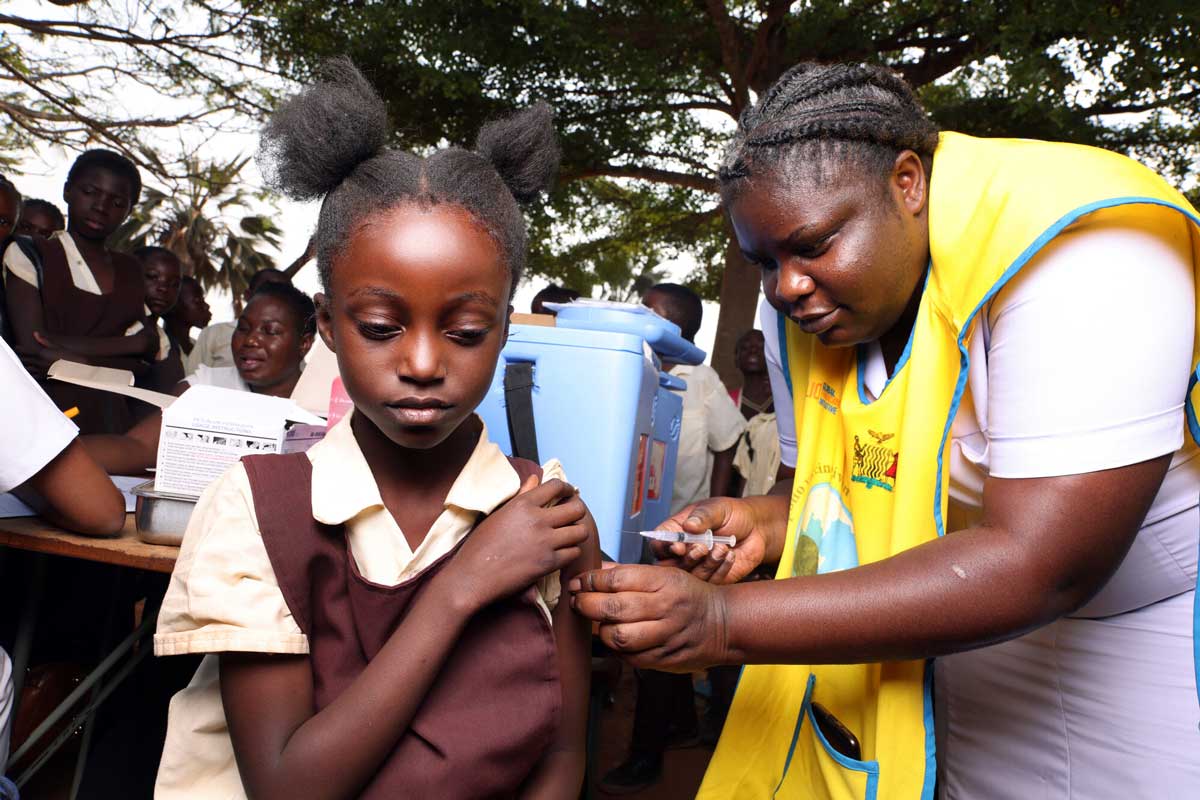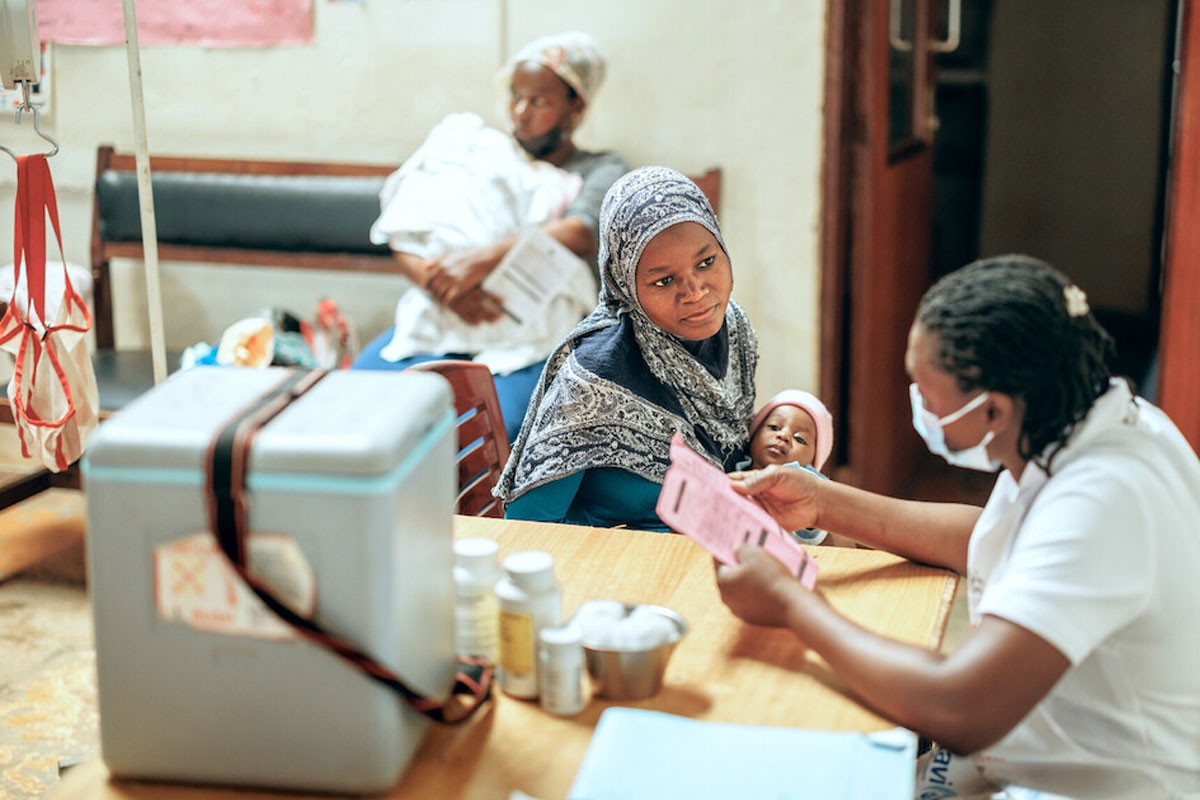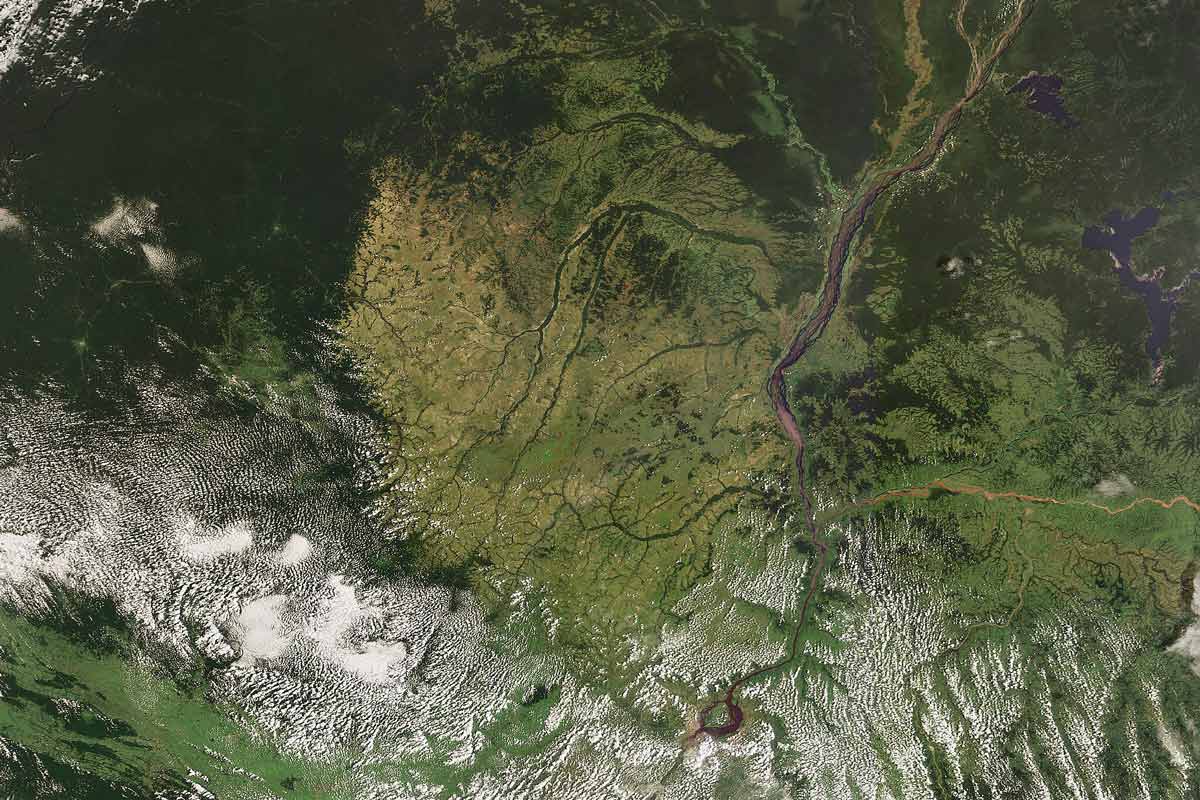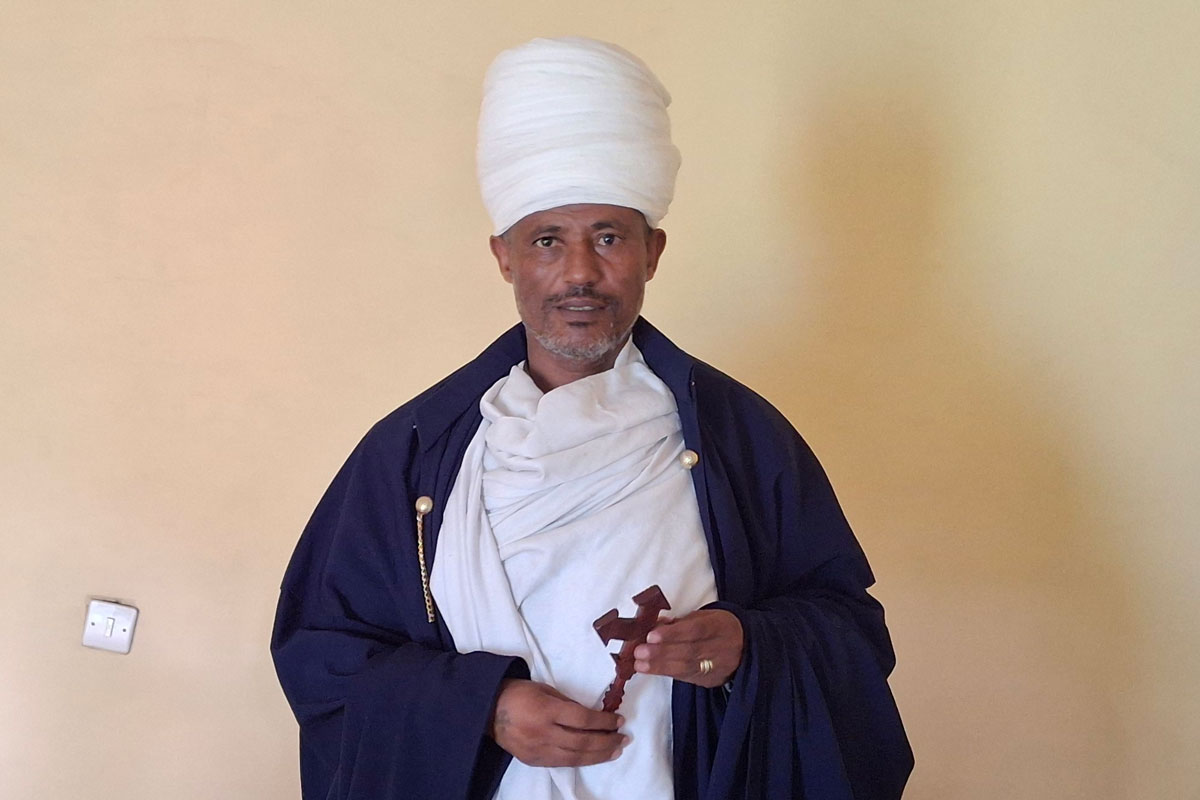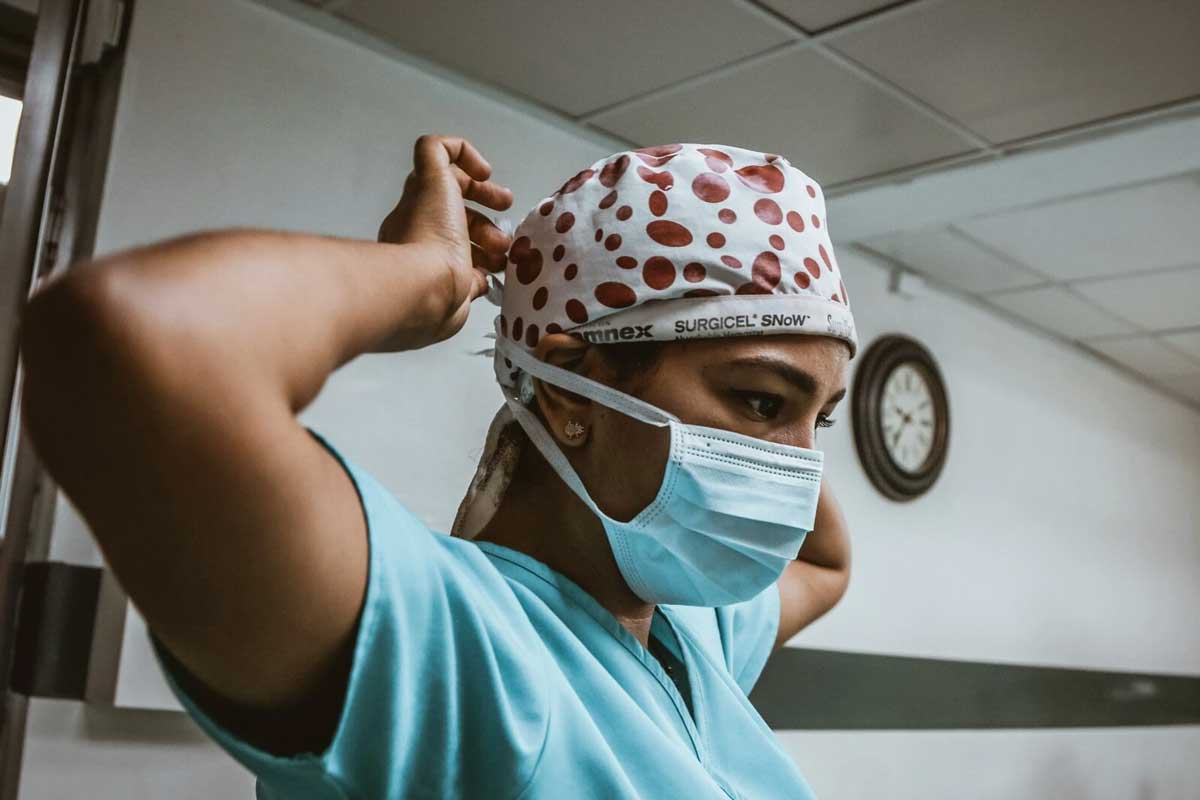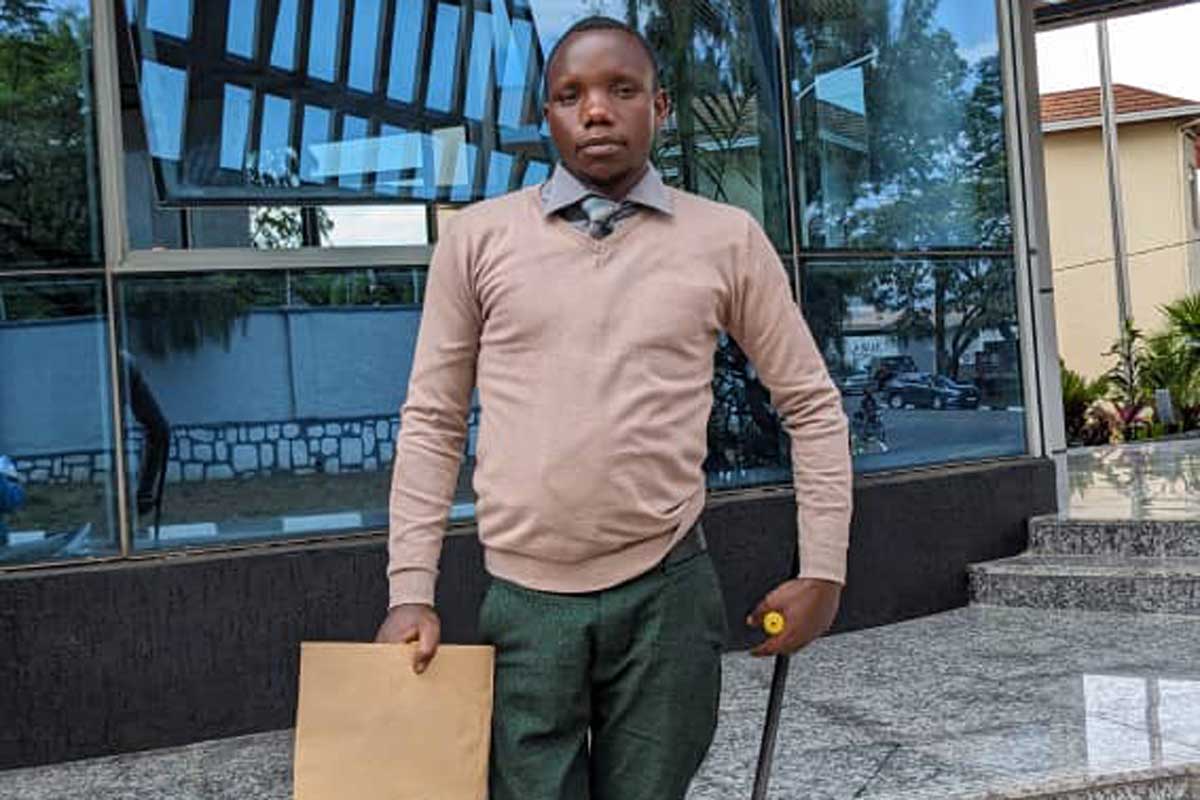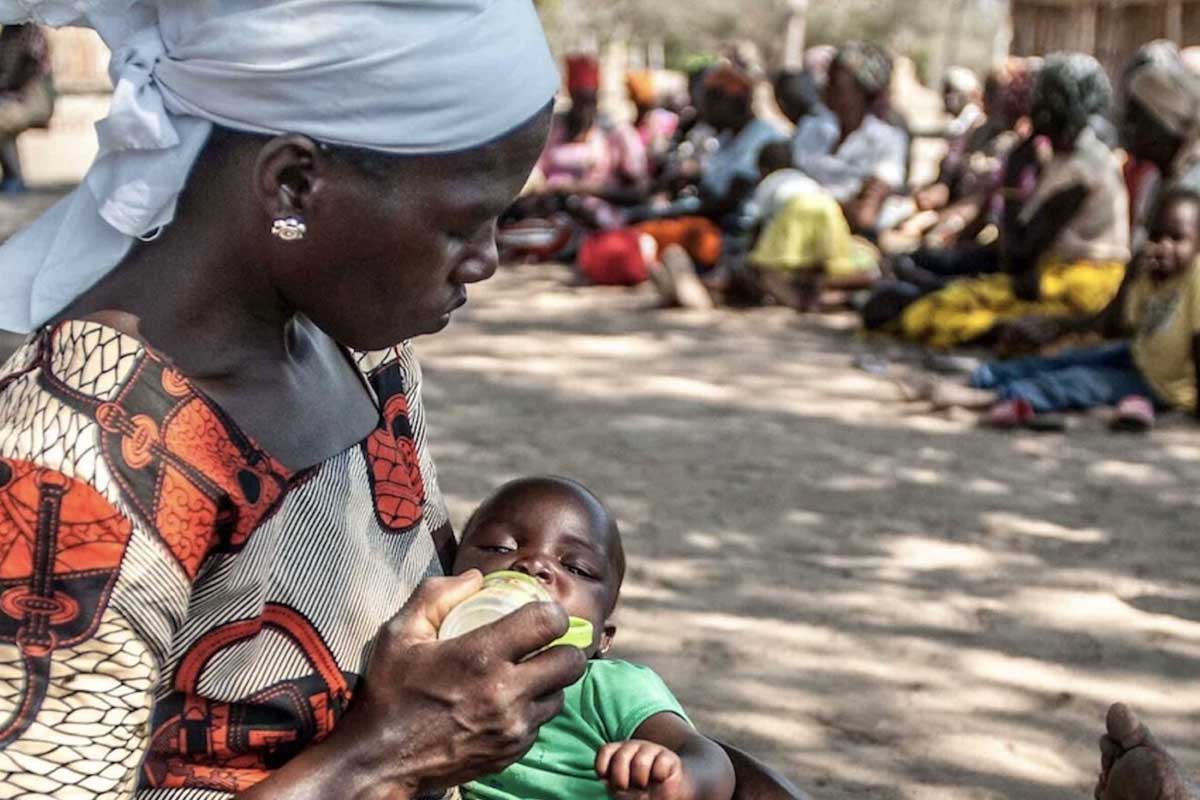COVID-19 lessons from a frontline health worker
Interview with Emmanuel Lansana, outpatient supervisor at Monrovia’s Redemption Hospital in Liberia, about lessons learned from the Ebola outbreak that can help tackle COVID-19.
- 8 April 2020
- 7 min read
- by Gavi Staff
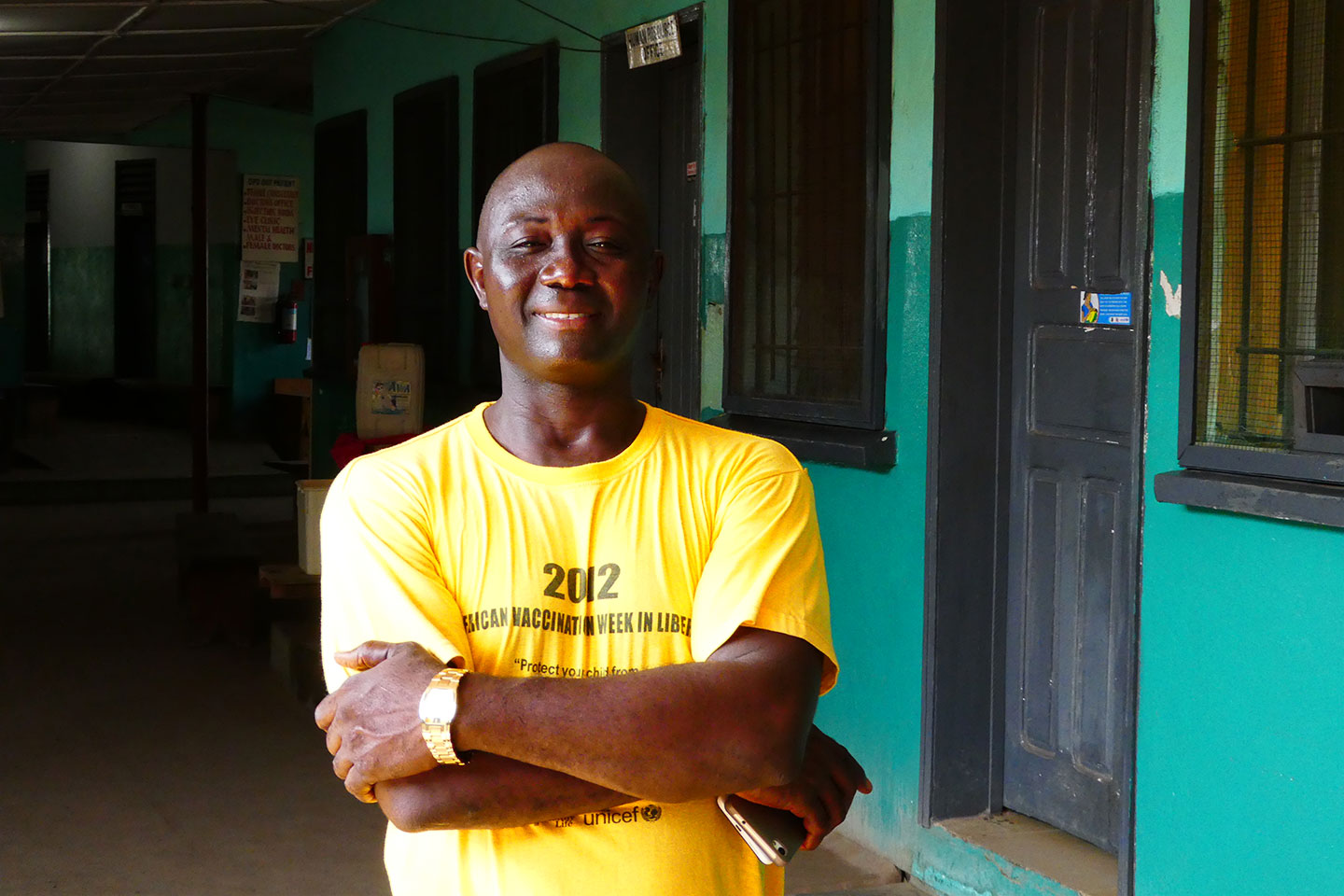
What is the situation like in Liberia? Is there concern around COVID-19?
COVID-19 has sparked global concern, but people in Liberia still don’t want to believe that it exists here. Despite government-led awareness efforts, many people still aren’t taking health recommendations seriously and are continuing to gather in large groups. The same thing happened during the Ebola outbreak. People didn’t listen, people challenged health workers, people didn’t cooperate until their loved ones began to die.
At the moment, it’s 9:53 am in Monrovia. I’m at Redemption Hospital. One of the challenges this morning is that there is a large group of patients who came for treatment, and obviously we can’t see all of them. They are not happy with the situation, but it’s beyond our control; we must enforce physical distancing measures to curtail the spread of COVID-19.
What challenges are you facing when it comes to keeping up with routine immunisation?
"Because of physical distancing, we can’t see everyone who needs to be immunised. Some people are being asked to come back to the hospital at a later date and those travelling long distances may not be motivated to return."
Redemption Hospital is one of the largest government hospitals in Liberia. We provide free healthcare to about 200,000 people. Under normal circumstances, we see 350 to 400 patients at the hospital. But due to the COVID-19 physical distancing measures, we see about 150 patients a day. If the situation deteriorates, we may have to take more extreme steps to reduce crowding and congestion.
Right now, there’s a huge crowd of patients lined up around the building waiting for medical attention.
Because of physical distancing, we can’t see everyone who needs to be immunised. Some people are being asked to come back to the hospital at a later date and those traveling long distances may not be motivated to return. We are also faced with logistical challenges in procuring vaccines, because at the moment government attention and resources are focused on COVID-19 response.
Why is it so important to maintain routine immunisation during these kinds of outbreaks?
The need for routine immunisation cannot be overemphasised. The essence of routine immunisation is to prevent vaccine-preventable diseases. If you focus solely on COVID-19 and forget about other vaccine-preventable diseases, you create opportunities for more outbreaks to emerge. The moment you lose sight of routine immunisation you create serious problems in the health system. Let’s also remember that most children receiving vaccines are under five. They are a vulnerable group, and if you don’t look after them, you add insult to injury.
What are you doing to prepare Liberians for the impact of COVID-19?
"For contact tracing to be successful, you need individual and community engagement to identify, test, trace and isolate the sick."
The government has initiated regulatory measures, for example limiting the number of people in commercial vehicles. They’ve also closed schools and banned church gatherings.
At Redemption Hospital, we’ve put in place infection prevention and control measures. We’re washing our hands constantly with soap and clean water and observing physical distancing rules. We also spray hospital surfaces with disinfectant.
Unfortunately, our personal protective equipment (PPE) supplies are dwindling. We don’t have enough masks, gowns and gloves. Nevertheless, we appreciate government and partner efforts to fill these gaps, and we’re committed to doing our best under the circumstances.
We are admonishing the community to take this emergency seriously. They shouldn’t be slow to respond to COVID-19 as we were to Ebola.
We are telling people that when there is someone in their home who doesn’t feel well, they should call emergency services or seek medical care immediately.
Are fake news and false rumours about COVID-19 an issue? How do you gain community trust in responding to the pandemic?
Liberia’s poor literacy rate is a major handicap in managing outbreaks like these. Patients with low levels of education may find it difficult to understand their health needs, filter false information, follow instructions and advocate for themselves and their families.
During the early days of Ebola, people didn’t want to believe health workers; they thought our warnings about this deadly disease were a ploy to get international aid. That was until people began dying around them and then they took it seriously.
Now we’re telling them that just because COVID-19 death rates aren’t as high in Liberia as elsewhere around the world doesn’t mean they should take their health and safety for granted. We’re referencing the Ebola experience so that people don’t repeat the same mistakes.
We’re asking people with the means to listen to international radio to understand the international impact of the pandemic. We hope that once they hear how much rich countries are struggling to get the virus under control, they will see why it’s so important to take it seriously in a country like Liberia with a weak health infrastructure.
What role does contact tracing play in preventing outbreaks?
Contact tracing is the cardinal tool if you want to curtail the spread of a disease like COVID-19. Once a case is identified, tested and isolated, you must immediately trace all the people the individual has come into contact with and monitor them for a defined period of time. If you don’t, the disease is going to spread beyond imagination.
As a contract tracing supervisor during the Ebola outbreak, I was responsible for training other contact tracers on the specific protocols. Contact tracers were assigned to monitor suspected cases and their contacts for 21 days and provide daily reports to the Ministry of Health. Anyone who showed signs and symptoms of Ebola, including a high fever was immediately reported to the Ministry, and immediate action was taken by isolating the contact and testing them.
What were some of the challenges you encountered working as an Ebola contact tracer? What are some lessons that can help with COVID-19 response?
"The financial benefits and accolades don’t drive me. What I have is an innate commitment and passion for the job, and a desire to serve humanity. That’s why I was at the frontline during the Ebola outbreak and why I’m at Redemption Hospital today."
When it first hit, Ebola was new and unfamiliar to Liberians, and because of this, people didn’t believe it actually existed. Our active case searches were impeded by people reluctant to report their symptoms out of fear and ignorance. People who came into contact with suspected or confirmed cases of Ebola didn’t want to admit that – for fear that they would be isolated to the Ebola treatment centre and they wouldn’t survive.
For contact tracing to be successful, you need individual and community engagement to identify, test, trace and isolate the sick. It’s also important to have adequate testing. Flu-like symptoms are common and people need to be tested to rule out COVID-19. Liberia may have more COVID-19 cases than are being reported because we don’t have enough tests and test centres.
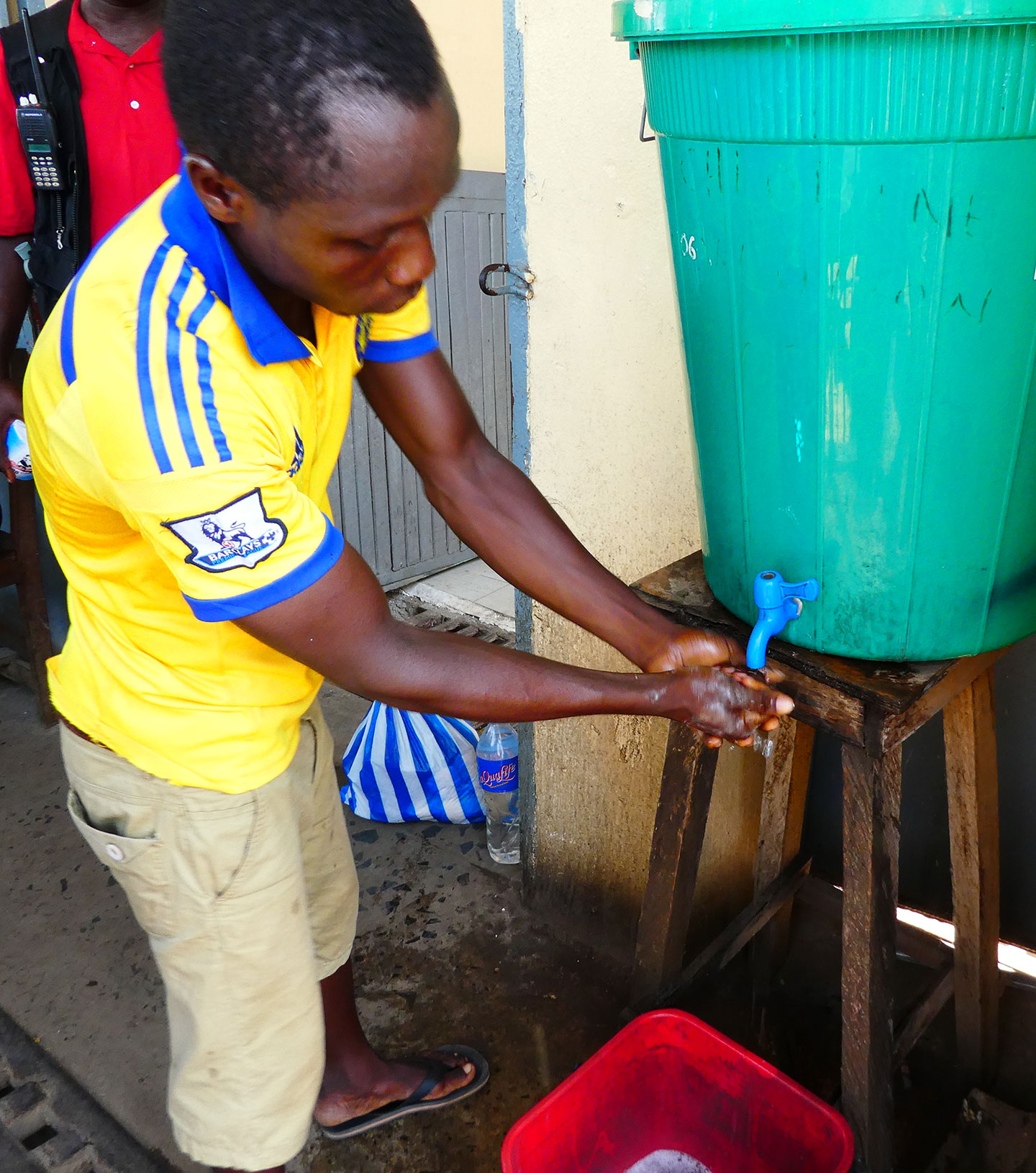
As a contact tracer what precautions can you take to protect yourself? What do you need?
It’s not necessary for contact tracers to use gloves because we maintain physical distancing and take people’s temperature without direct contact. What is critical are masks and face shields.
Do you think Liberia is better prepared to deal with the COVID-19 outbreak since the Ebola outbreak?
Frankly, we’re not as prepared as we should be. But we’re better off than if we had never experienced Ebola. Before 2014, we had extremely poor health infrastructure; health workers didn’t know about basic infection, prevention and control measures. Ebola built our capacity to some extent. We’re more knowledgeable now and we can build on that knowledge with essential medical supplies.
What keeps you motivated to work on the frontline of outbreaks like COVID-19?
The financial benefits and accolades don’t drive me. What I have is an innate commitment and passion for the job, and a desire to serve humanity. That’s why I was at the frontline during the Ebola outbreak and why I’m at Redemption Hospital today.
A final “mic drop” message for our readers?
Liberia is a fragile country, the health system is very weak, but when it comes to beating COVID-19, we’re in this fight together.
